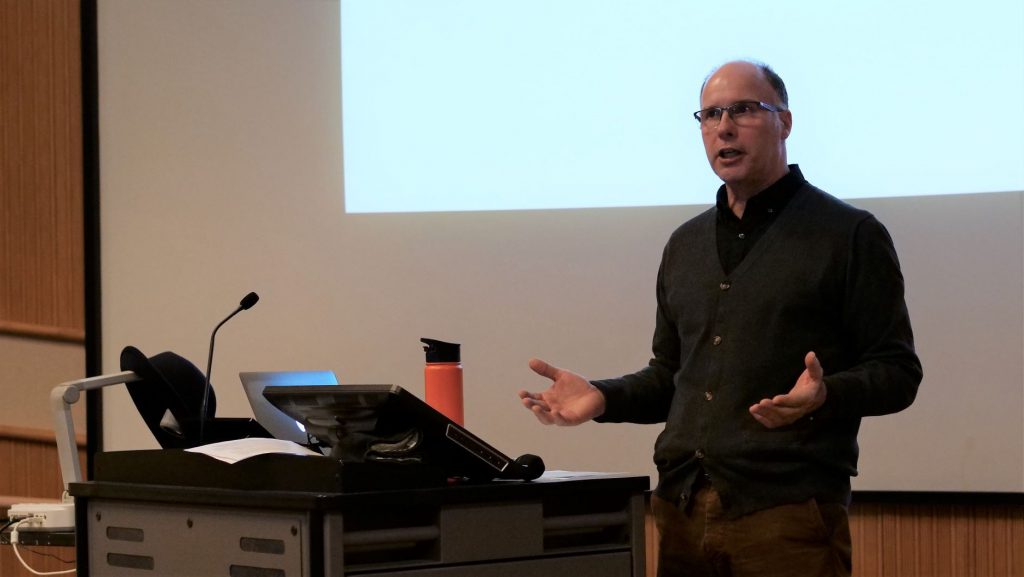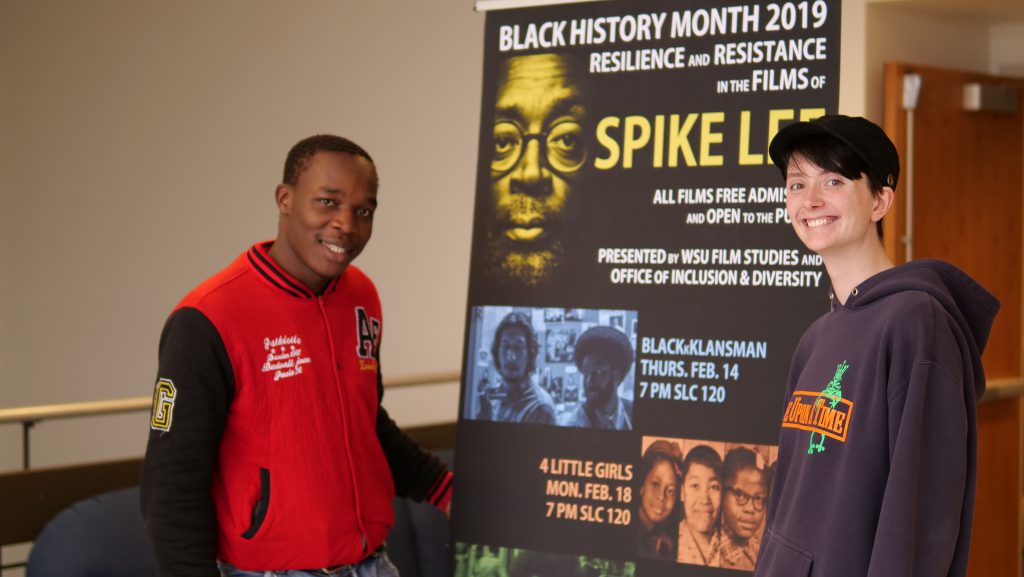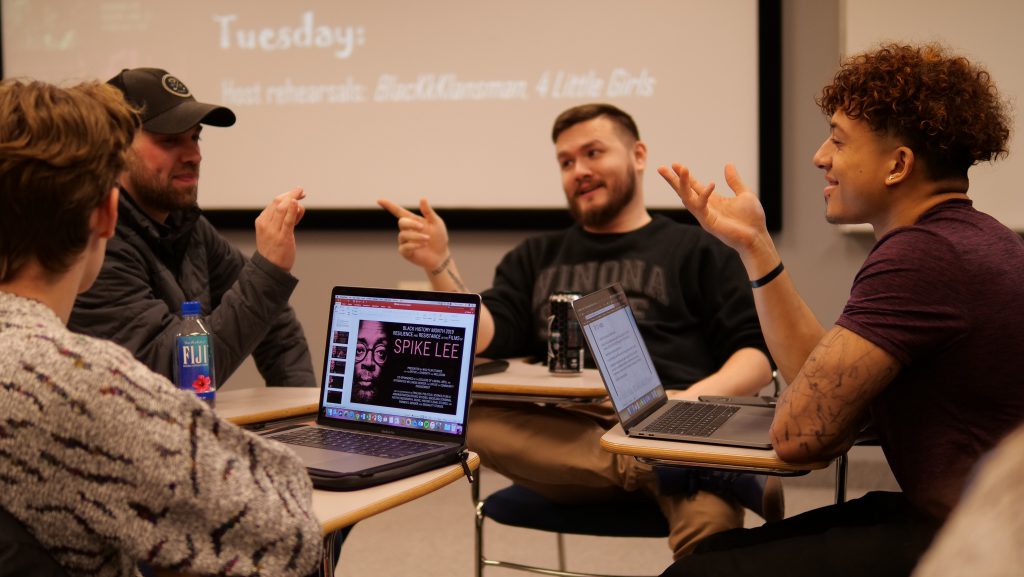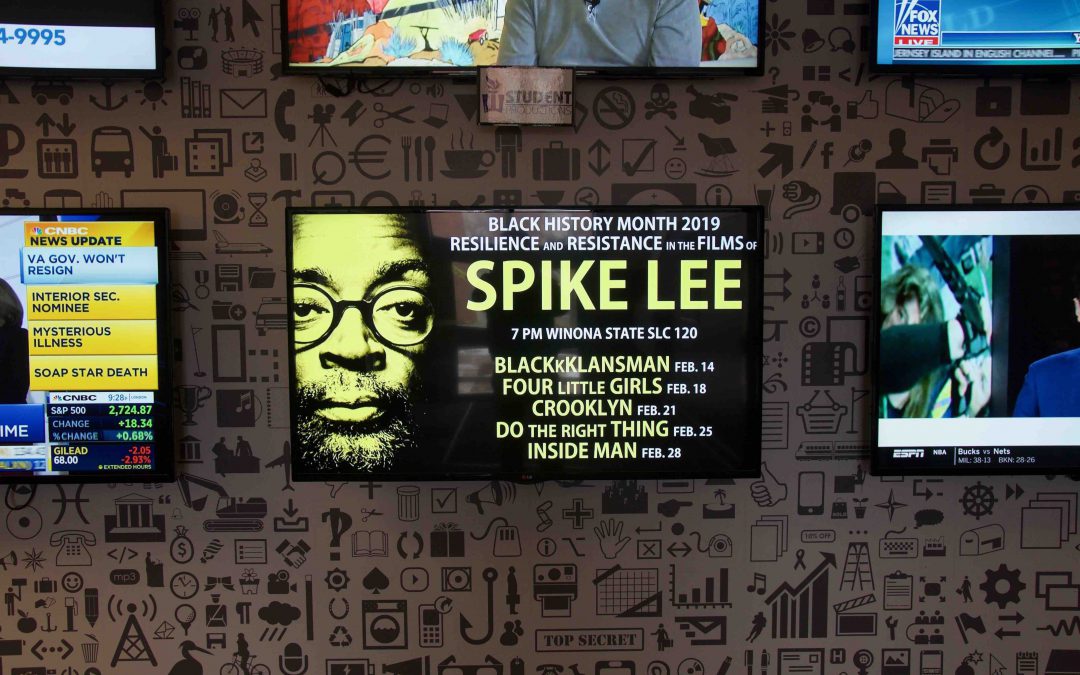With Black History Month underway, Winona State University’s Film Studies program is partnering with the school’s Office of Inclusion and Diversity to sponsor a series showcasing films by director-writer Spike Lee.
The series, titled “Resilience & Resistance: The Films of Spike Lee,” begins at 7 p.m. on Thursday, Feb. 14, with a screening of the Academy Award-nominated feature for Best Picture and Best Director “BlacKkKlansman.”
Winona State English and film professor J Paul Johnson, whose students in a course titled “Directors/Stars: Spike Lee” will curate the series, said Lee’s films were chosen to coincide with the university’s observation of Black History Month.
“We want to celebrate Black History Month by looking at the career and accomplishments of one of the most celebrated, important and influential of all African-American filmmakers across the 20th and 21st centuries,” Johnson said.
“(Lee’s) work is especially timely given the success of ‘BlacKkKlansman,’” Johnson continued. “(The) film … has fully earned its Best Picture Academy Award nomination, as well as the first-time Best Director nomination for Spike Lee himself.”

Film Studies Professor J Paul Johnson spoke on Spike Lee’s documentary 4 Little Girls and other films at a Winona State Liberal Arts panel Wednesday, Feb. 6.
With the film and Lee’s nominations coinciding with the upcoming series, a new facet of the series is introduced by not only appreciating Lee’s career, but celebrating his long overdue recognition that many, including Johnson, feel he has been deprived of in his 30-plus-year career.
“‘Do the Right Thing,’ for example, (is) really among the great works of American cinema,” Johnson said in relation to Lee’s nominations. “I think he was simply too radical, resistant and revolutionary for the Academy to award in times that were pretty conservative.”
“One can make the case that the Academy is still pretty conservative,” Johnson humorously added.
Film Studies student Brynn Artley commented on her lack of familiarity with Lee and how films like “Do the Right Thing” had an impact on her. “I’m taking the Spike Lee Film Studies class this semester. Previous to that I had only seen one film of his, ‘Do the Right Thing,’ and I watched that because of a summer Film Studies class.”
“(‘Do the Right Thing’) was different from anything I had ever (seen),” Artley continued. “It gave me a lot to think about. It’s one of those films that I probably wouldn’t have gone out and watched on my own, but I was grateful that I did get to see it because of class.”
The films selected in addition to “BlacKkKlansman”—“Four Little Girls,” “Crooklyn,” “Do the Right Thing” and “Inside Man”—are, as Johnson described, meant to showcase the range of Lee’s career, spanning from his political works like “BlacKkKlansman” and “Do the Right Thing,” to his exercise in mainstream thriller filmmaking with “Inside Man.”
“He really has a strong body of work,” Johnson said. “And that’s something that can hold up a whole film series.”

Film Studies students Gregory Okello and Kendra Devine-Pringle plan the Feb. 18 screening of Spike Lee’s 4 Little Girls.
Planning for the series began shortly after the hiring of Inclusion and Diversity director Jonathan Locust, who Johnson was interested in partnering with on programming for the school upon meeting him.
Regarding his thoughts on the series, Locust expressed excitement at the prospect of Lee being the subject matter of an entire film series.
“Spike Lee (is) one of my favorite directors,” Locust said. “He’s also produced some of my favorite movies I grew up with.”
Locust also voiced his thoughts on the partnership between Inclusion and Diversity and Film Studies.
“Finding out there was a class being taught (on Lee), and being asked to collaborate, it just made sense,” Locust said. “These are the types of things that Inclusion and Diversity wants to be involved in.”
Locust also discussed the range of the films selected and how they might identify with a diverse audience.
“No matter who you are, you should be able to find something,” Locust said. “Even though the films are being shown during Black History Month, these aren’t necessarily Black History Month films.”
Johnson commented on the lack of showings for Spike Lee films in Winona, as well as the director’s large absence from the public eye in the last decade.
“I think it would be great if our community could have the opportunity to take a look at once again and celebrate the incredible work he has done over his career,” Johnson said.
Locust suggested that the series will be successful because it is bringing films to Winona that are either largely under-appreciated or just were never given enough exposure.
“Our office is here to try and provide access and opportunity,” Locust said. “We’re giving access to films that people may not have access to on a regular basis or may have to travel a little bit farther to see.”
Artley touched on how cinema by filmmakers of African descent often goes unnoticed.
“I think African American cinema as a whole doesn’t get exposure as much as a lot of other films from the 70s and 80s,” Artley said. “They’re not necessarily celebrated in the way I think they should be.”
Johnson also added that the 30th anniversary of “Do the Right Thing” awards a series like this an opportunity to impart upon an audience the knowledge and recognition that Lee, especially early on his career, struggled to find the means to create and showcase his films.

WSU Film Studies minors and majors Dylan Johnson, Joe Van Ryn, Josh DeLaRosa, and Chris Schroeder plan for the Feb. 25 screening of Do the Right Thing.
“He didn’t have the benefit of growing up inside or working within the traditional Hollywood system of distribution and exhibition,” Johnson said. “He had to rely on friends and family for funding … often in non-union productions.”
Locust voiced a lesson audiences should take away from the series as a whole.
“There is a common perception that everybody in the industry is just white,” Locust said. “It’s important for people to see that there are films being made by under-represented groups.”
“Go out and support those individuals,” Locust encouraged. “(And see what) films aren’t making it to the current big box office market.”
The objective of this series seems to be to impart upon an audience the struggles that African American filmmakers like Spike Lee had to—and still—endure in their quest to get their vision seen by a wide audience.
On top of that, the choice of films from Lee’s diverse career have the potential to enhance the experience by simply entertaining audiences, as well.
Once the series is over, both Johnson and Locust are open to another partnership between Inclusion and Diversity and Film Studies.
“I hope Film Studies can keep partnering with Inclusion and Diversity on either Black History Month programming or Women’s History Month programming,” Johnson said. “That could be a pretty exciting avenue for us.”
Locust referred to one of the objectives of Inclusion and Diversity as the compass for a future partnership.
“The goal is you want to try to meet as many people and engulf yourself in different cultures,” Locust said. “We want to continue having the film series and working with Dr. Johnson and other faculty and asking, ‘Who are other directors we need to be looking at?”

WSU Film Studies majors Harrison McCormick and Noah Mruz are among those presenting the Feb. 14 screening of BlacKKlansman.
Film Studies student Joe Van Ryn expressed hope for more film series like this one in the future.
“I feel like there should be a film series every semester at Winona State,” said Van Ryn. “I think that’s really important. Not only for the university, but the students who are studying here.”
In addition to “BlacKkKlansman,” the subsequent films in “Resilience & Resistance: The Films of Spike Lee” will show every Monday and Thursday at 7 p.m. until the end of February in the auditorium of Winona State’s Science Laboratory Center. All film admission is free and open to the public.


Recent Comments